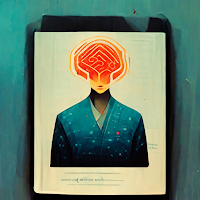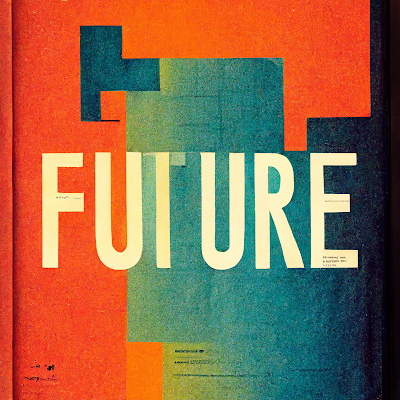Marketing got us into this mess
Perhaps it is marketing that will help get us out of it?
Last week I was invited by the NZ Marketing Association to join a panel of industry leaders to speak about "The future of marketing, 2025 and beyond" at an 'After 5' event.
We were each given a max of 5 minutes to speak on the subject, and none of us were allowed to get together in advance of the talk.
I knew a few of the panel members, so guessed the angle they were likely to take and so decided to perhaps challenge all the attendees with a slightly different take on the subject.
I proposed that we cannot talk about marketing's future without talking about the context that marketing may have to operate in, or 'where we will play'.
In the days leading up to the event, I did some extremely topline horizon scanning and generated four possible scenarios.
I selected one of those to base my 5-minute talk upon. I chose to speak about 'A possible future of marketing in a post-capitalist world' - a lot of ground to cover in five minutes!
Anyway, it generated a lot of discussion and several senior marketers and business people made contact with me afterward, and I made some new LinkedIn contacts - where to from here though?
Here is the transcript of my five-minute speaker slot:
WHAT IS 'A POSSIBLE FUTURE OF MARKETING'?
Introduction
All the fun of the fair. The future of marketing is portrayed as bright, expansive, and growing.
New opportunities, new ways to consume, and more money to be made.
But what if the context changes?
The clock is ticking
The future of marketing is about to become a whole lot more
uncertain.
Not just COVID-19, the Ukraine war, and rampant inflation, but the
doomsday clock of climate change is taking us ever nearer to midnight.
Our capitalistic model is beginning to crack and so is the planet.
Growth-on-growth is not sustainable. We are using more resources than we
can ever replace.
By 2032 we may be in a post-capitalism world that has changed the
way things work completely.
What might this mean for the future of marketing in a
post-capitalism world? Are we prepared?
What will consumers buy in the future and how can we still participate? What will it look like when less really is more?
1. What is the future of marketing in a post-capitalism world?: What skills will we need?
That is uncertain, but we know that we have loads of transferable
skills – at least we should have.
Here are just some:
|
Behavioural science |
Behavioural change Working with government, social agencies, and businesses to make the
needed changes socially acceptable. Power retailers are masters of marketing scarce resources,
encouraging us to consume less. |
|
Insights over big data |
We hear far too much about big data, and nowhere near enough
about providing useful, actionable insight |
|
Social media and other digital channels |
The age of instant, the access to networking and the evolution
to virtual worlds |
What other skills will be needed?
|
Horizon scanning |
Watching for emerging trends and weak signals of impending
change |
|
Scenario planning |
Providing us with the ability to respond to continued
turbulence. |
|
Cutting through the BS about the metaverse to see what it may
provide |
Risks and opportunities |
2. What will consumers buy in this new world?
What Consumers buy will change. Consider:
|
Higher quality – more utility. No more built in obsolescence |
|
From Fast Fashion to Slow classics - subscribe when you buy new,
repair and upcycle, trade-in for replacement |
|
From new clothing to opshop chic - build upon this fast-growing
trend |
|
From Fast food to Slow food – From ‘all you can eat’ to ‘Just
what you need’ |
|
From Animal meat to Plant Protein |
|
From Real international travel to Virtual interworld experiences |
|
From personal vehicle ownership to subscription services for
vehicle usage |
|
Growth in NGO’s lobbying and citizen movements calling to Reduce, Re-wear, and Re-home goods and products. |
3. Conclusion – BUY BETTER. BUY LESS.
The current way we all do marketing is unsustainable, and it is going
to bite us on the bum.
It is up to us to play our part in changing the way that we all do
business.
In a post-capitalist
society, we must authentically focus on the consumers’ needs Vs wants.
Consumers' needs will shift to mirror the changing nature of
society, and people will be looking for increased product quality and
durability, and a better customer experience all around.
For all of our sakes, we, the privileged, need to ‘Buy better.
Buy less’.
The consumer is the person who decides what to buy and what to
consume.
Consumer demand drives what products to make, how much to produce,
and how much to pay for them.
The consumer is the one who decides how much society consumes,
what the economy produces, and what toll the environment pays to supply it for
us.
But finally, it is we, the marketers and advertisers that create
the needs, wants and desires that feed the consumers' behaviour. But let us not forget that we are
the consumer, and the consumer is us.
One thing is for sure, we will all need to lift
our game because.... marketing has got us into this mess, and so marketers need to help get us out of it.









Comments
Post a Comment